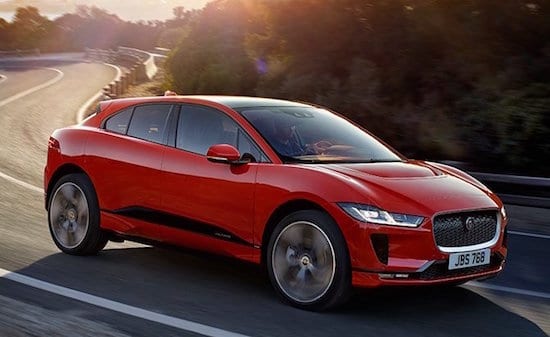Based on some 5 year old data and fossil-fuel-friendly assumptions, German car owners association ADAC has come up with the remarkable conclusion that “The electric car is not always particularly climate-friendly”.
Really? And you worked that how?
Well, let’s have a look at how they contrived to reach that conclusion. Firstly the assumption that a vehicle only lasts 150,000km.
That’s 10,000 km a year for 15 years or 15,000 km a year for 10 years. Pretty low usage – you’d think the car would be in rather good nick and would still have a reasonable second hand value.
Or maybe the Germans don’t like used cars?
Who scraps a car after that sort of mileage? Even a petrol or diesel car with gazillions of moving parts should last longer than that. And an EV should last a lot longer than a petrol car because it only has a few moving parts; i.e. less to go wrong. Duh.
And then ADAC factors in the emissions from building and scrapping the car and uses old grid emissions data with no assumptions of improvements?
Naughty ADAC. Here’s why.
The Lithium ion battery, motor and cooling system require more emissions to manufacture than a petrol engine, gearbox and cooling system – about 4500kg of CO2-e emissions more in the case of the Nissan Leaf, for example – let’s call it the ‘production surplus’.
If the EV is charged from renewables, it should produce essentially no emissions during its lifetime and so can “work off” those production surplus emissions.
The longer the lifetime, the more chance the EV has to show a benefit, compared to the petrol car. So, shortening the lifetime is plain wicked.
In fact, an equivalent petrol car produces emissions from burning petrol and should produce an equivalent amount of emissions to the EV’s production surplus after 25,000km (if it runs at 8L/100km) or 50,000km (if it runs at 4L/100km; good luck with that).
ADAC claims that the petrol car and EV hit emissions-parity at around 50,000km. That’s a very generous assumption for the petrol car. Ah, but what about end of life for the two cars? Recycling the cars at 150,000km brings forward the recycling of the EV’s Lithium ion battery.
Fortunately, that’s only about 200kg CO2-e for a Leaf. The rest of the two vehicles will be substantially the same.
But bringing forward the end of life scenario to 150,000km brings forward the extra emissions from scrapping the battery prematurely and, again, makes the petrol car look better – although not much better, as 200kg CO2-e is only an extra 2000km or so for the gassy car.
In fact, the Lithium ion battery should be good for another 30 years’ use – so why scrap it, anyway? Why not re-purpose it and use it to power a home or a cold storage facility (nice steady discharge and re-charge, hopefully from solar on the roof.)
Alternatively, seeing that the EV drivetrain will still be as good as new after 150,000km, why not scrap the petrol car (if you insist) but keep using the EV for another 150,000km.
That would improve the lifetime emissions of the EV by more than 250,000km compared with the gasser.
That’s a saving of 50,000 kg of CO2-e. Then the ADAC folks compare the emissions of the EV with old German grid emissions data (when it was more coal-dependent) and come to the conclusion that a petrol vehicle will be more efficient than an EV for the first 116,000km, leaving only 35,000 km for the EV to make a difference.
Worse still, the diesel car is calculated to be better than the EV over the entire lifetime. Heavens, who would have thought that diesel was better than an EV over an entire lifetime?
Nice work, guys. To give ADAC some due, they do acknowledge that – if charged by renewables – the petrol vehicle is only better than the EV for the first 50,000km and that, by implication, the next 100,000km are a win for the EV.
That’s 66% lower emissions, even with the 150,000km lifetime assumption. And charging from an old grid, not renewables.
And assuming that grid emissions will never get better. And, on that basis, the EV is not particularly climate friendly?
This underlines the problem with these sorts of reports – they add to the confusion about EVs, and will be used by lobby groups to push back on low emissions targets, as we are seeing already in the US.









